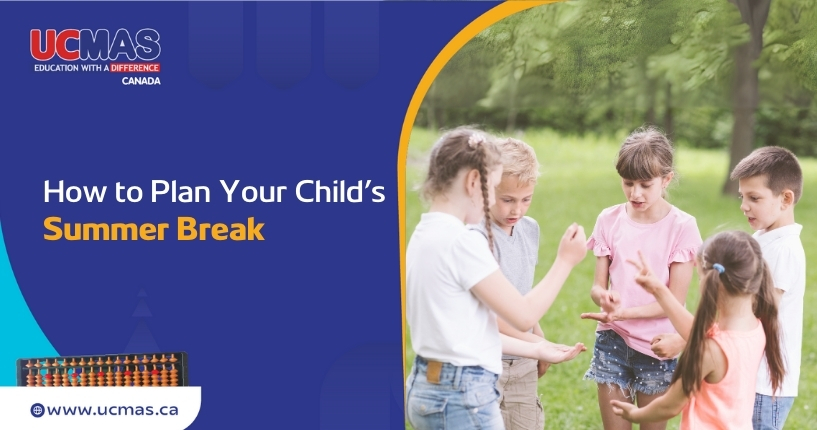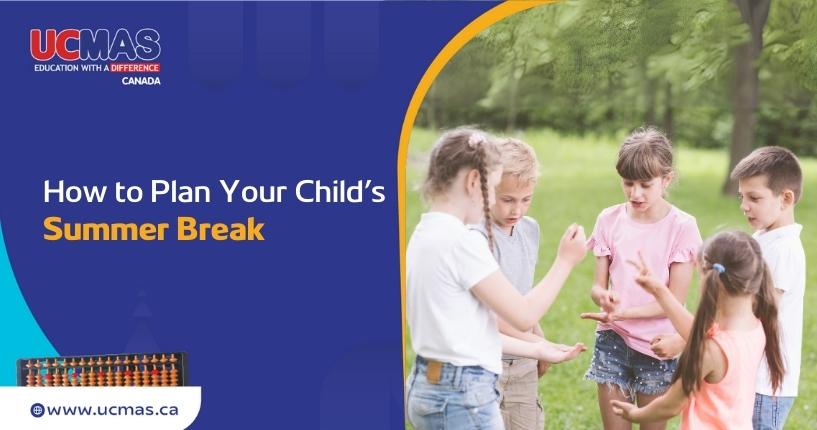
Summer break is that magical time of year when school’s out, days are longer, and kids dream of playtime and popsicles. But as a parent, you might wonder: how do you make the most of these two months without letting all the learning go out the window? The answer: a summer plan that’s as fun as it is productive.
Here’s something eye-opening: studies show that, on average, students lose about a month’s worth of learning over the summer break, with children in grades three through five losing up to 20% of their reading gains and 27% of their math gains during these months. The good news? Research also shows that engaging summer activities, such as camps, hands-on projects, and regular routines, can help prevent the “summer slide” and keep kids’ minds active and ready for the next school year.
Let’s walk through how to turn this summer into one your child will remember (and learn from!). We’ll talk about wrapping up the school year, keeping kids engaged, planning meaningful activities, and easing back into school life without stress.
1. Start With a Quick School-Year Recap
Before diving into summer activities, take a moment to sit with your child and reflect on the school year. What subjects did they enjoy? What were their proudest moments? What challenges did they face?

This little recap session does two important things:
- It helps kids recognize how much they’ve grown.
- It helps you understand where they might need a little extra practice over the summer, such as some math support or confidence-building activities.
Not sure where to start? Try asking, “What was your favorite school project this year?” or “What subject felt the hardest?” You might be surprised by what you learn.
2. Keep the Brain Engaged (Without Overloading)
Summer should be about fun, but you can sneak in a little learning in creative ways. Kids don’t need textbooks; they need engaging experiences.
This is where a UCMAS Summer Math Camp comes in. These camps aren’t about cramming; they’re about stimulating your child’s brain with exciting activities like abacus math, memory games, puzzles, and teamwork challenges.Don’t just take our word for it, see why so many parents love it: UCMAS Summer Camp – Beyond Fun and Learning
3. Avoid the “I’m Bored!” Blues
If we had a dollar for every time a child said “I’m bored” during summer, we would be millionaires. So, instead of letting boredom take over (or turning to screens), try building a loose weekly routine that includes both structured and unstructured time. Routine doesn’t have to be rigid, just enough to add a comforting rhythm to their day.

Here are some ideas that don’t involve gadgets:
- Outdoor scavenger hunts
- Water balloon math games (yes, that’s a thing!)
- Drawing their dream home
- DIY science experiments
- Board game afternoons
For even more inspo, check out some Gadget-Free Summertime Activities.
4. Keep Them Physically Active Too
Summer’s the perfect time for physical movement. Whether it’s swimming, biking, or running through sprinklers, daily movement is essential for your child’s physical and mental well-being. Many after-school programs and camps incorporate physical activities into their offerings, which is especially beneficial for kids who need more structure or motivation to stay active.
You can also get creative as a family:
- Nature walks with a “spot the animal” checklist
- Backyard obstacle courses
- Family dance-offs in the living room!
5. Encourage Independent Learning
Give your child some control over their summer goals. Maybe they want to learn a magic trick, write a comic book, or build a LEGO city. Supporting these projects fuels creativity and independence.
And if they’re struggling with math confidence or focus, suggest a fun brain-boosting program like UCMAS. Their math camps feel like a game zone! It’s hands-on, empowering, and tailored to help children learn through movement, interaction, and play.
6. Slowly Transition Back to School Mode
Before you know it, August will roll around, and switching from “summer chill” to “school routine” overnight can be a jolt for any child.

Instead, try easing into it with these steps:
- Reintroduce earlier bedtimes and morning wake-ups two weeks before school starts.
- Create a simple back-to-school checklist (supplies, new clothes, lunch ideas).
- Set small goals for the upcoming school year.
- Start light practice in areas your child found tough last year (math, reading, etc.).
Even a casual conversation, such as “What are you excited about this school year?” can shift their mindset toward school in a positive way.
7. Don’t Forget the Power of Praise
Summer is a great time to build emotional resilience. Praise effort, not just results. Celebrate when your child finishes a workbook page, learns to tie their shoes, or shows kindness at the park. These small wins, combined with fun learning, boost confidence and set your child up for a strong start to the new school year.
Key Takeaways: Summer Planning Made Easy
Let’s wrap it all up:
- Reflect on the school year together—celebrate and learn from it
- Limit screen time with creative, gadget-free idea
- Keep your child physically and mentally active
- Encourage goal-setting and independent learning
- Ease back into school routines gradually
- Celebrate small wins and efforts all summer long
- Blend fun and learning with activities like UCMAS Summer Camp
Make Summer Time Fun With UCMAS
Summer isn’t just a break from school, it’s a chance to grow in ways classrooms can’t always offer. With a little planning and the right resources, you can help your child create a summer full of fun, friendships, and future-ready skills.

So if you’re looking for a “kids summer camp near me” or want to explore a program that goes beyond basic tutoring, check out the unique summer offerings by UCMAS Canada. Whether your child joins our camps or programs, they will develop lifelong skills and love every moment of it. Book our info session to learn more!






